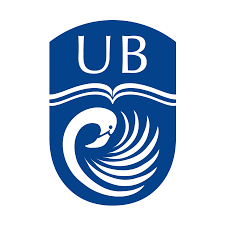We Are Not OK: The Bahamian Plantationocene, Hurricane Dorian, and the limits of academic genre
DOI:
https://doi.org/10.15362/ijbs.v30i1.569Keywords:
Autoethnography, Post-traumatic Stress Syndrome, Bahamas, Hurricane Dorian, 2019, Abaco, Grand Bahama, Disaster victims, Climatic changes -- Effects of human beings onAbstract
In September 2019, Hurricane Dorian made landfall in The Bahamas, ending lives, decimating infrastructure, and dispersing survivors. Soon after, the COVID-19 pandemic halted mainstream economic activity for well over a year. Despite the appearance of structural recovery and rebounding tourism, the island nation and the scholars who covered these events are still not OK five years later. How do we narrate events like these? In this piece, using autoethnography, a group of Bahamian and international scholars reflect on their experiences after the impact of Hurricane Dorian.
References
Bahamas National Statistics Institute. (2023). Census of population and housing 2022 preliminary results. https://www.bahamas.gov.bs/wps/wcm/connect/c0d9fae8-54df-49e3-b4b9-92e29e0b264c/2022+CENSUS+PRELIMINARY+RESULTS_FINAL+April+12+2023.pdf?MOD=AJPERES
Bethel, N. (2000). Navigations: The fluidity of identity in the postcolonial Bahamas. [Unpublished doctoral dissertation, University of Cambridge]. https://original-ufdc.uflib.ufl.edu/AA00007511/00001
Bethell-Bennett, I. A. (2020). Bahamian coloniality and violence: Legal legacies. International Journal of Bahamian Studies, 26, 147–163. https://doi.org/10.15362/ijbs.v26i0.373
Bethell-Bennett, I. A. (2021). Dorian unmaking space: Policy, place, and dislocation. International Journal of Bahamian Studies, 27, 117–130. https://doi.org/10.15362/ijbs.v27i1.423
Bethell-Bennett, I. A., & Fürst S. M. (2021). Moving forward post-Hurricane Dorian: The necessity for public, private, and individual collaboration in the face of climate change. International Journal of Bahamian Studies, 27, 87–92. https://doi.org/10.15362/ijbs.v27i1.425
Bonilla, Y., & LeBròn, M. (2019). Aftershocks of disaster: Puerto Rico before and after the storm. Haymarket Books.
CBS Miami. (2019, September 1). Web extra: Desperate cry for help made on social media during Hurricane Dorian in Bahamas [Video]. YouTube. https://www.youtube.com/watch?v=1NHek2wYL50
Davis, J., Moulton A.A., Van Sant , L., & Williams, B. (2019). Anthropocene, Capitalocene, … Plantationocene?: A manifesto for ecological justice in an age of global crises. Geography Compass 13(5). https://doi.org/10.1111/gec3.12438
Environmental Defense Fund. (2023). How climate change makes hurricanes more destructive. https://www.edf.org/climate/how-climate-change-makes-hurricanes-more-destructive
Fürst, S. M., & Hellberg, D. (2023). Raising awareness of expressive writing as a method for alleviating the trauma of Hurricane Dorian in The Bahamas. International Journal of Bahamian Studies, 29(2), 117–124. https://doi.org/10.15362/ijbs.v29i2.539
Hannerz, U. (1974). Caymanian politics: Structure and style in a changing island society. Stockholm Studies in Social Anthropology.
Haraway, D. (2016). Staying with the trouble: Making kin in the Chthulucene. Duke University Press.
InterAmerican Development Bank. (2020). Impact of Hurricane Dorian in The Bahamas: A view from the sky. https://publications.iadb.org/en/impact-hurricane-dorian-bahamas-view-sky
Klein, N. (2008). The shock doctrine: The rise of disaster capitalism. Picador Press.
Liboiron, M. (2021). Pollution is colonialism. Duke University Press.
Merriam-Webster. (2023). Anthropocene. In Merriam-Webster Dictionary. https://www.merriam-webster.com/dictionary/Anthropocene
Moore, A. (2019). Destination Anthropocene: Science and tourism in The Bahamas. University of California Press.
Moore, J. W. (2016). Anthropocene or Capitalocene? Nature, history, and the crisis of capitalism. PM Press.
Moore, S., Allewaert, M., Gómez, P., & Mitman, G. (2019). Interrogating the Plantationocene, Edge Effects. https://edgeeffects.net/plantationocene-series-plantation-worlds/
Packer, G. (2021). Last best hope: America in crisis and renewal. Macmillan.
Roth, P. (2000). The human stain. Vintage International.
Sou, G. (2019). Barbudans are resisting ‘disaster capitalism’ two years after Hurricane Irma. The Conversation. https://theconversation.com/barbudans-are-resisting-disaster-capitalism-two-years-after-hurricane-irma-119368
Strachan, I. (2003). Paradise and plantation: Tourism and culture in the anglophone Caribbean. University of Virginia Press.
Thomas, A., & Benjamin, L. (2023). Climate justice and loss and damage: Hurricane Dorian, Haitians, and human rights. The Geographical Journal, 189(4), 584-592. https://doi.org/10.1111/geoj.12484
U.S. Department of Commerce. (2023). Hurricane Dorian, September 6th, 2019. https://www.weather.gov/mhx/Dorian2019
West, P. (2016). Dispossession and the environment: Rhetoric and inequality in Papua New Guinea. Columbia University Press.
Wynter, S. (1971). Novel and history, plot and plantation. Savacou, 5, 95–102. https://warwick.ac.uk/fac/arts/english/currentstudents/postgraduate/masters/modules/caribbeanreadingwordlecology/wynter_plot_and_plantation.pdf







